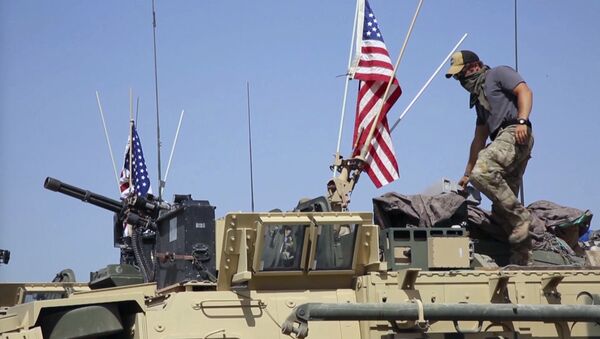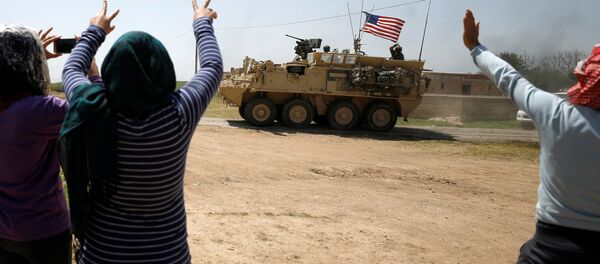Sputnik: Why has the US given Turkey leeway in Syria?
Ilter Turan: I think, Turkey and the United States were headed for a clash over north-eastern Syria, where the Americans were using its proxy, the YPG, to conduct their struggle against Daesh, but this was fine to be unacceptable by Turkey, because Daesh is an extension of the PKK that operates out of northern Iraq into Turkey. So, I think part of the reason was that the United States did not want to have a clash between Turkish and American soldiers and, of course, the broader question was whether it was prudent to essentially go on a distractive path with its NATO ally.
Now, of course, there may be a number of reasons why the United States may have given leeway, of which what I said is one, but many American presidents before him [have] come into office promising to bring troops back home from that part of the world. There was a promise on the part of Mr. Trump to bring the troops back home and I think he is now delivering on it. There also seems to be a domestic struggle between the Department of Defence and the Department of State. It seems that Department of State's position is maybe more to the liking of Mr. Trump at this particular time.
READ MORE: 'No Benefit': Turkey Warns France Against Remaining in Syria Amid US Pullout
Sputnik: Now we know, Donald Trump insists that the US has already defeated Daesh, while there is a lot of indifference from European nations with regard to his thoughts. They're warning that the terrorist group could gain ground amid the US withdrawal. What's your take on that? Do you think that the European allies are justified in making that statement? What's your perspective, from a Turkish point of view?
Ilter Turan: Let me say both yes and no. Let me clarify what that means. I think, Daesh probably will come to the realization, if it hasn't already, that trying to build a territorial state at this moment seems to be an impossibility; the moment they return back to that policy, I think, they will unify everyone that has differences of opinion among themselves to come together again and drive Daesh out. I think, as a sort of military force with territorial ambitions, Daesh might be out for a while.
As you know, with these terrorists' movements, they take various forms and shapes and they may pursue other acts of terrorism in urban centres. From that perspective, the danger Daesh poses to society has not disappeared. They may also take their struggle to European capitals, as they've tried to do in the past. From that perspective, Daesh can be used to be a source of concern, but the way to fight it might not be through regular armies any longer, but through police work, etc.
READ MORE: Turkey Delays Syria Military Operation to Avoid US Friendly Fire — Minister
Sputnik: President Trump has said that it's time for others to fight in the Middle East. How will the balance of power change in the Middle East and what implications will it have? We know there is a melting pot in the Middle East. Every day, every week there is some different angle, there is some different issue, challenge, thrown up. This is now going to add to that particular narrative. How will the balance of power change? We know that Turkey is the second largest NATO country in terms of armament and manpower, are they going to take the leading hand?
Ilter Turan: I think Turkey would not like to be the only country and its own interests are basically ensuring that there is no hostile formation on its borders that is constructed by the YPG. This concern has been expressed in terms of the YPG forming a westward corridor, starting from the Sinjar mountain area in Iraq and extending all the way to the mountains near the Mediterranean Sea.
So, in this sense, the balance is modified, but the goals are basically the same. The implication is that somehow the Assad regime will have to be incorporated more closely into devising a solution than it has been so far. I would imagine that Turkey would come to the recognition that they may initially have to work with the Assad regime in planning a transition that will be characterized by a new constitution and new elections.
The views and opinions expressed by the speaker do not necessarily reflect those of Sputnik.


